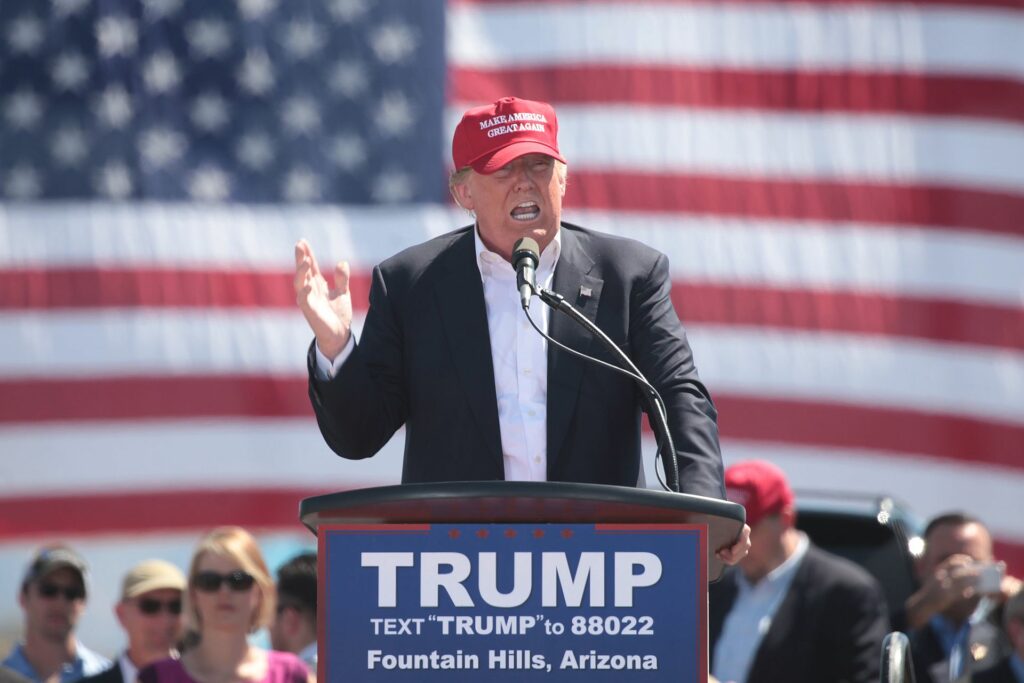Abortion
Trump betrays the pro-life movement
In 2017, Kellyanne Conway took the stage at the National March for Life in Washington, D.C., to tell the gathered crowd of thousands that she was “a mother, a Catholic, counselor to the president of the United States, and yes, I am pro-life!” The crowd roared. Conway continued: “It means to stand up, stand tall, and stand together against the indifference and the indefensible; and to stand up, stand tall, and stand together on behalf of babies in the womb.”
But during a recent interview on healthcare policy, Conway sang a different tune. Politico’s Ryan Lizza noted that the issue of IVF had rocked the GOP after the Alabama Supreme Court affirmed that human embryos are human beings. “How do you advise a Republican candidate who says, you know what, Kellyanne? I believe an embryo is a human life,” Lizza asked.
“I know a few people like that—I don’t know many,” Conway replied. “I know you [the press] always want them to be the rule, not the exception.” Lizza interrupted: “Wait a minute—you don’t know anyone who believes that life starts at conception?” Conway dithered. “I know many people who believe that, but you’re talking about embryos . . .” Lizza, who had accurately characterized the pro-life position, looked stunned as Conway went on to explain that pro-life and pro-choice people essentially believe in the same “exceptions” when it comes to abortion.
To summarize: Kellyanne Conway, an allegedly pro-life adviser to Donald Trump, claimed that the pro-life position is not that unique, whole, unrepeatable human beings must be protected from conception. Instead, she articulated what appears to be the emerging GOP position: that there is little difference between being “pro-life” and being “pro-choice,” and that protecting unborn children during the early stages of pregnancy—when most abortions occur—is an extremist position.
Indeed, on April 8 Donald Trump released a video claiming that the overturn of Roe v. Wade put “abortion where everybody wanted it from a legal standpoint,” and that it is now an issue for the states. “You must follow your heart on this issue but remember, you must also win elections to restore our culture and, in fact, to save our country, which is currently and very sadly a nation in decline,” he said. “Always go by your heart. But we must win.” When the unborn were politically convenient, Trump championed their rights. Now that they are not, he has abandoned them—and, as I noted earlier in First Things, he actively campaigns against laws that protect them from the gruesome death of abortion.
Even Trump’s federalist position on abortion lasted less than two days. On April 10, reporters asked Trump if the Arizona Supreme Court justices “went too far” in a recent ruling to uphold the state’s pro-life law. Trump responded: “Yeah, they did. That’ll be straightened out . . .” He then stated that the governor of Arizona, a pro-abortion Democrat, and other governors “are going to bring it back into reason.” On April 24, three Republicans defected to the Democrats and voted for repeal. The senate will likely confirm this in May, leaving Arizona with a fifteen-week abortion law—something Trump opposes at the federal level (even though most European countries have significantly stricter laws limiting abortion).
It would be shortsighted to dismiss the pro-choice rhetoric of Donald Trump and other MAGA figures as mere electioneering. Trump was given the label “the most pro-life president in American history.” He is now using that credibility to fundamentally redefine what the term “pro-life” means in the minds of Americans—even those who identify as pro-life. What are voters to think when “the most pro-life president” tells them that “heartbeat” laws in states like Florida are “too harsh,” as he did last May? Will Trump campaign for the pro-life side in the upcoming Florida abortion referendum after saying this—or for the pro-choice side?
READ THE REST OF THIS COLUMN AT FIRST THINGS








